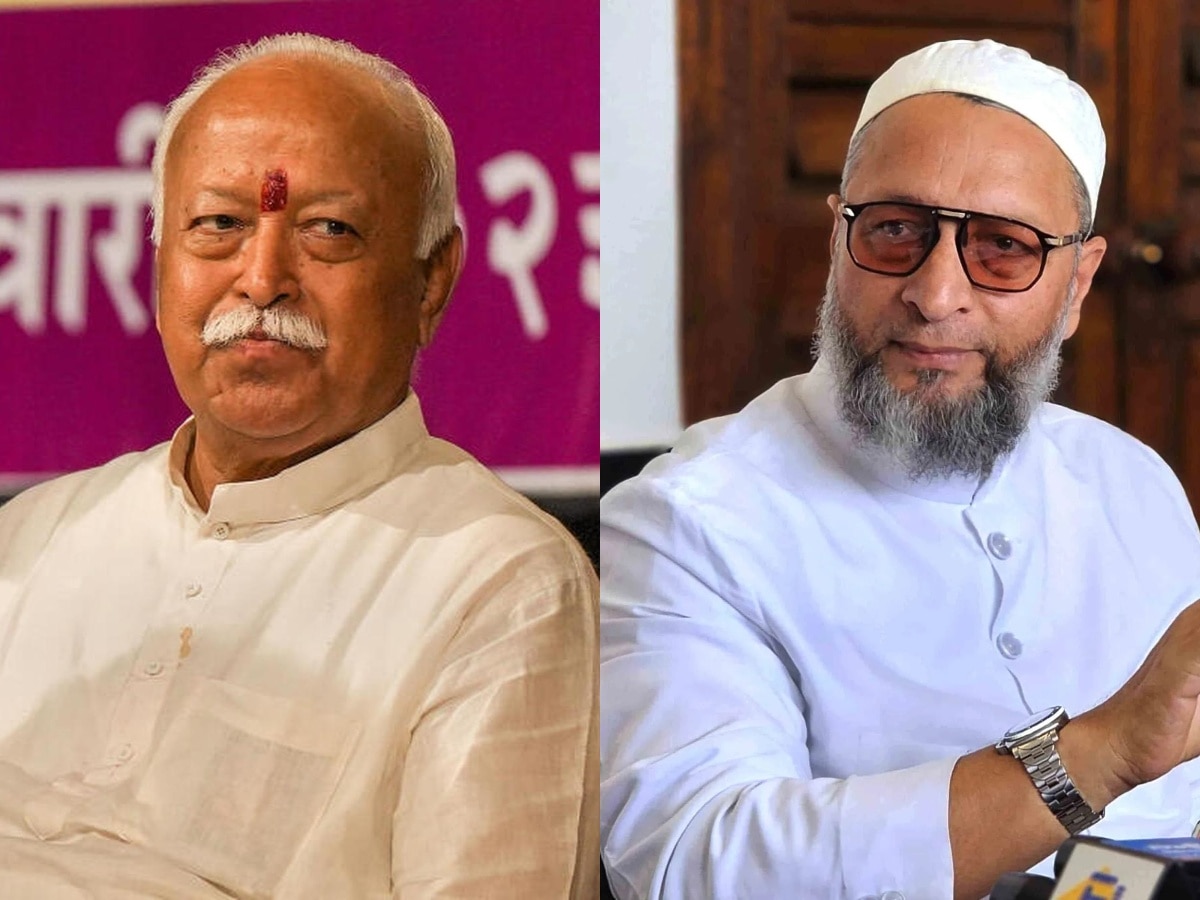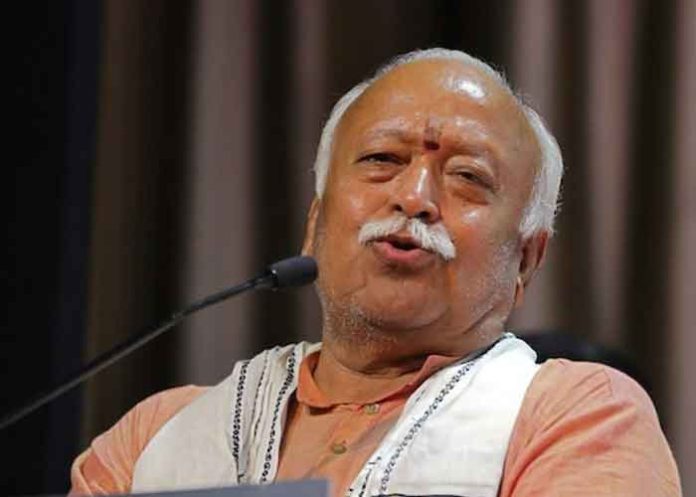Rashtriya Swayamsevak Sangh (RSS) Chief Mohan Bhagwat reignited a heated political debate by suggesting that a fertility rate of three is crucial for societal survival. Speaking at the Kathale Kul Sammelan in Nagpur on Sunday, Bhagwat cited modern population science, claiming that societies risk vanishing if their fertility rates drop below 2.1.
While some supported his remarks as a call to action against India’s declining population, opposition leaders like AIMIM chief Asaduddin Owaisi and Congress leader Tariq Anwar were quick to criticize his stance, sparking a political slugfest.

Bhagwat Highlights Declining Fertility Rates
Addressing the gathering, Bhagwat stressed the importance of maintaining a robust fertility rate to ensure the survival of society and cultural heritage. “Modern population science says that when the fertility rate of a society falls below 2.1, that society faces extinction without any crisis. Many languages and culture have disappeared this way. For the survival of society, a fertility rate of two or three is necessary,” he remarked.
Bhagwat further pointed out that India’s population policy, framed decades ago, also emphasized the need to maintain a fertility rate of at least 2.1 to safeguard societal stability.
Owaisi Questions Financial Incentives For Larger Families
AIMIM supremo Asaduddin Owaisi, known for his sharp critiques, took a sarcastic jab at Bhagwat’s comments. Speaking to reporters, Owaisi questioned whether the RSS chief would provide financial incentives for families adhering to his fertility recommendations.
“Will Mohan Bhagwat deposit ₹1,500 into the bank accounts of parents who have more children? Will there be a government scheme for this? If he can push to make someone close to him the Chief Minister, he might as well introduce a fertility incentive program,” quipped Owaisi.
Owaisi also expressed concerns about the practicality of Bhagwat’s suggestion, emphasizing existing issues like unemployment, inflation, and farmer suicides.
Congress Calls Sangh’s Stance Confused
Congress leader Tariq Anwar criticized Bhagwat’s comments, alleging a contradiction within the Sangh Parivar. “On one hand, BJP leaders accuse Muslims of having higher fertility rates, urging restrictions like a two-child policy. On the other hand, Mohan Bhagwat advocates for higher fertility rates to protect civilization and heritage. The Sangh family seems utterly confused,” said Anwar.
BJP Defends Bhagwat’s Statements
Union Minister Giriraj Singh came to Bhagwat’s defense, accusing Owaisi of selectively addressing issues related to the Muslim community while ignoring the plight of Hindus in Bangladesh and other regions.
“Owaisi talks about Palestine and minority issues in India but remains silent on atrocities against Hindus in Bangladesh. Why do leaders like Rahul Gandhi and Akhilesh Yadav also stay quiet on such matters?” Singh questioned.
Singh also highlighted recent violence in Uttar Pradesh’s Sambhal district, attributing the unrest to a court-ordered survey of a Mughal-era mosque. “Radicals are committing atrocities on Hindus, and saints are being imprisoned. India has taken a strong stance, but international intervention is needed,” he asserted.

Mixed Reactions From Public And Analysts
Bhagwat’s remarks have evoked mixed reactions from political analysts and the general public. While some view it as a call to address India’s demographic challenges, others criticize it as outdated rhetoric disconnected from the realities of modern India.
Critics argue that instead of focusing on fertility rates, policymakers should prioritize addressing socio-economic challenges like unemployment, education, and healthcare. “The debate should be about improving the quality of life, not merely increasing population numbers,” said one political analyst.
Broader Implications Of The Debate
The controversy underscores the ongoing divide in India’s political and social discourse surrounding population policies. Bhagwat’s comments have reignited conversations about balancing demographic stability with sustainable development.
As the debate unfolds, it remains to be seen whether Bhagwat’s remarks will influence future policy discussions or become another flashpoint in India’s polarized political landscape.

